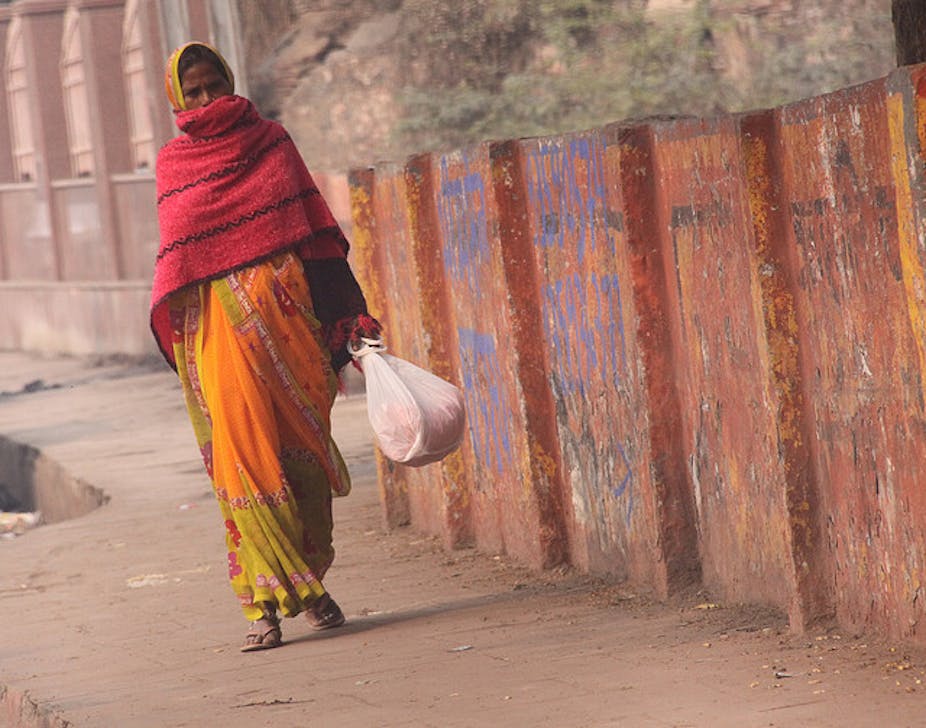Swiss pharmaceutical company Novartis this week lost a seven-year legal battle over a drug patent in India. It’s certainly a win for those in India who use the drug, and for patients in India more generally. Given India’s key role in the global supply of affordable medicines, the decision also has world-wide implications.
In the face of fierce opposition from public health advocates and sections of the domestic drug industry, Novartis stubbornly pursued a patent for its anti-cancer drug imatinib mesylate, marketed in India as Glivec.
Through its legal action, Novartis sought to continue to be able to charge a price for Glivec per patient per year of around A$26,000. Generic versions are presently available at about A$2,000 per year. Novartis also supplies Glivec at no cost to some patients.
What made the patenting of Glivec such a major issue was not only the price of this particular drug in the Indian market, but its significance as a policy precedent for the future. A legal victory for Novartis would have meant a proliferation of patents on a wide range of medicines for a longer period.
Novartis’ initial application to patent imatinib mesylate was rejected in January 2006 on the grounds it represented a new form of a known substance and therefore was not patentable. Novartis’ claim was first rejected by the Chennai Patent office in 2006, then by the Madras High Court in 2009, and then again by an appeals court in 2009.
At each step, Glivec was deemed to be a modified version of a pre-1995 drug for which patents cannot be issued under Indian law.
The Supreme Court in New Delhi has now determined that Novartis cannot be granted this patent. In a carefully argued judgement, the court found imatinib mesylate “fails the test of section 3(d)” of India’s Patents Act.
Medicine policy in India
India has a remarkable history of civil society engagement with drug policy and intellectual property rights, notably the World Trade Organization’s (WTO) 2005 Agreement on Trade-Related Aspects of Intellectual Property Rights (TRIPS).
From the 1980s, during the negotiations leading up to the formation of the WTO, public health advocates and domestic drug producers mobilised public opinion against looming pharmaceutical patents.
When India became fully TRIPS-compliant in 2005, with the introduction of pharmaceutical product patents, the legislation incorporated in full the “flexibilities” available under TRIPS, as confirmed in the 2001 Doha Agreement.
These flexibilities include the right of national governments to define patentability in domestic legislation, limits on data protection, pre- and post-grant opposition to patents, and provisions for the issuing of compulsory licensing.

Minor modifications
The Novartis case revolved around the definition of the criteria for patentability. Section 3(d) of the Patents (Amendment) Act, 2005, is intended to prevent the awarding of patents for new uses or slightly modified versions of known molecules, unless a “significant enhancement of efficacy” can be demonstrated.
The objective is to prevent evergreening: unwarranted extension of monopoly pricing through patenting of trivial modifications. Such patent extensions constitute a form of rent seeking, known in corporate parlance as an important “life cycle management” technique. The purpose is to delay the market entry of cheaper generic brands.
Evergreening does not contribute to research addressing the “neglected diseases” affecting the world’s poor. Rather, it causes social welfare losses through the stifling of competition. Preventing this type of marginal and trivial patenting will provide stronger incentives for truly innovative research.
Indeed, the patent-based business model of the large pharmaceutical companies is detrimental to the global need for affordable medicines meeting real therapeutic needs.
Patented drugs currently constitute a small proportion of India’s pharmaceutical markets, but their relative share and therapeutic significance will inevitably increase in coming years.
On present trends, the pricing of patented second and third generation HIV/AIDS drugs will significantly reduce the number of patients able to afford adequate treatment – not only in India but throughout the developing world.
International implications
This ruling has implications for affordable access to medicines across the developing world. As Médecins Sans Frontières (MSF) said this week,
The Supreme Court’s decision now makes abusive patents on the medicines that we desperately need less likely. This marks the strongest possible signal to Novartis and other multinational pharmaceutical companies that they should stop seeking to attack the Indian patent law.
The Novartis ruling sets an important precedent. It demonstrates that flexibilities available under TRIPS are not dead letters, notwithstanding pressures from corporations and the US government.
It is possible for governments in developing countries to set stringent criteria for patenting and thus facilitate early access to life-saving, low-cost generics. In particular, countries such as India, China, and Brazil bring growing political and economic resources to bear in their interactions with multinational companies and with the governments of the United States and Europe.
The outcome of the Novartis case is consistent with a pattern since the 1990s of a de facto coalition of health advocates, non-governmental organisations and some governments, including India’s, seeking to limit the impact of intellectual property rights protection on access to medicines.
Next steps
Other important legal cases are pending in India, including Bayer’s appeal against lower court decisions to reject its challenge to the issuance of a compulsory license on Nexavar, another cancer medicine.
And the impending free trade agreement between India and the European Union pose further threats to access to affordable medicines.
But in the meantime, the rebuff of Novartis’ attack on a measure to protect public health should be celebrated as a great win for patients in India and the developing world.

